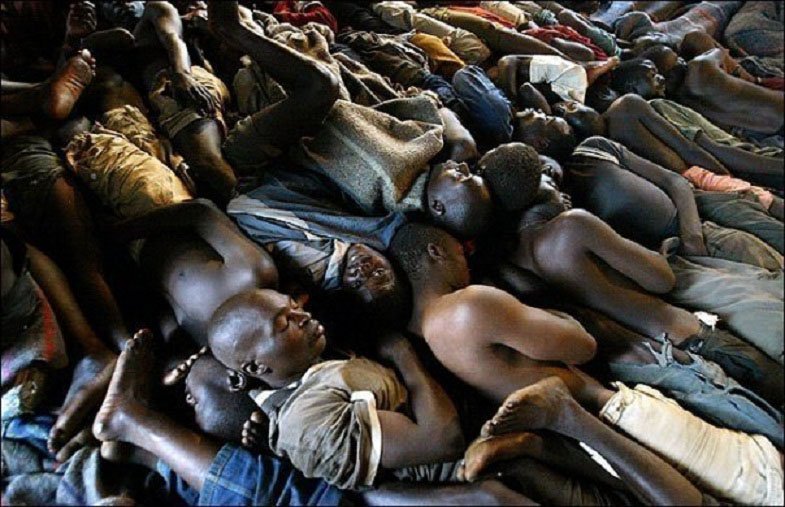
THE country’s overcrowded federal prisons have become a matter of concern, not only to human rights advocates but to ordinary citizens with a sense of human decency. After several decades of overstretched facilities in prisons across the country, fears are rife that the prison system is at risk of explosion or implosion.
The danger of prison collapse arises from subhuman conditions in which inmates are kept. Citizens with relations or friends to visit in prison often give grim descriptions of the dismal state of prisons in various parts of the country: appalling toilet conditions, stench-filled indoor air, poor feeding, inadequate water supply, etc., all of which result from keeping 2,000 inmates in facilities designed for 600.
Reasons for the horrendous condition are not far-fetched. Out of the 68, 259 prison inmates in about 227 prisons, 46, 351 (68%) are suspects awaiting trial. There are also about 1,400 inmates awaiting executions. The high number of persons on death row is traced to failure of governors to endorse death warrants as prescribed by the constitution, and the dearth of hangmen to carry out executions. In effect, the conditions of prisons are so repulsive that pundits call for a state of emergency in respect of the prison infrastructure and management.
Like everything else about the country, the solution to the life-denying situation in prisons requires government’s will to think out of the box. There is need to provide the right infrastructure in this sector. Governments: federal, state, and local must build new prisons and improve on existing ones. Subnational governments must also be positioned to monitor prison administrators closely, to ensure prisons are not overpopulated. Research has proved that prisoners incarcerated in substandard prisons are more likely to riot and get violent than those housed in life-affirming conditions.
Furthermore, there is no excuse for any country to fill its jail with 68% of inmates who have not been found guilty of any offence. This aberration justifies the old saying: “Justice delayed is justice denied,” which the Administration of Criminal Justice Act 2015 was designed to avoid. Nothing should stop the government from hiring more magistrates and judges to ensure that no suspect is in jail before he or she is duly convicted. It is callous to incarcerate citizens who have not been found guilty of any crime. In other countries, awaiting trial suspects who cannot obtain bail are subject to electronic or satellite tagging that restricts their movement to their homes, while awaiting trial. Many convicts for non-capital offences are sentenced to supervised community service.
We believe that governors who are reluctant to endorse death warrants are not showing kindness to the convicts but cruelty. It is hypocritical to keep capital punishment on the legal books and then develop cold feet when duly convicted criminals are sentenced to death. It is also old-fashioned to insist on the use of hangmen. Criminals on death row in other parts of the civilised world no longer need to be killed by hanging or through other brutal methods. There are many more humane options to carry out capital punishment that the government ought to consider.
Governments at all levels need to rethink many concepts and methods that have not worked in respect of crime and punishment. This is a right time to review criminalisation of minor rascally conduct, such as loitering, for which many young men are put in jail to await trial. Furthermore, length of jail term for non-capital offence needs to be reviewed. For example, many countries are shifting from imprisonment as punishment to rehabilitation, a principle that allows for early release of prisoners deemed to be of good behaviour.
National and subnational governments need to improve governance and reduce inequality. The greater the inequality in a society, the greater the criminality. With good governance, a country currently with 69,000 prisoners in a population of 180 million may become less prone to crime.
All said, we believe that making provision and administration of prison exclusive functions of the central government is wrong-headed. It is illogical to have a constitution that separates state from federal offences and then leaves prison administration for both categories of crime in the hands of the central government. This, like the practice of using a central police force to investigate and prosecute state offences, is likely to lead to insensitivity, inefficiency, and ineffectiveness. Prison should be taken from the Exclusive to the Concurrent list, as it was before the Unification Decree of 1966. Over-centralisation impedes efficiency.
END

Be the first to comment